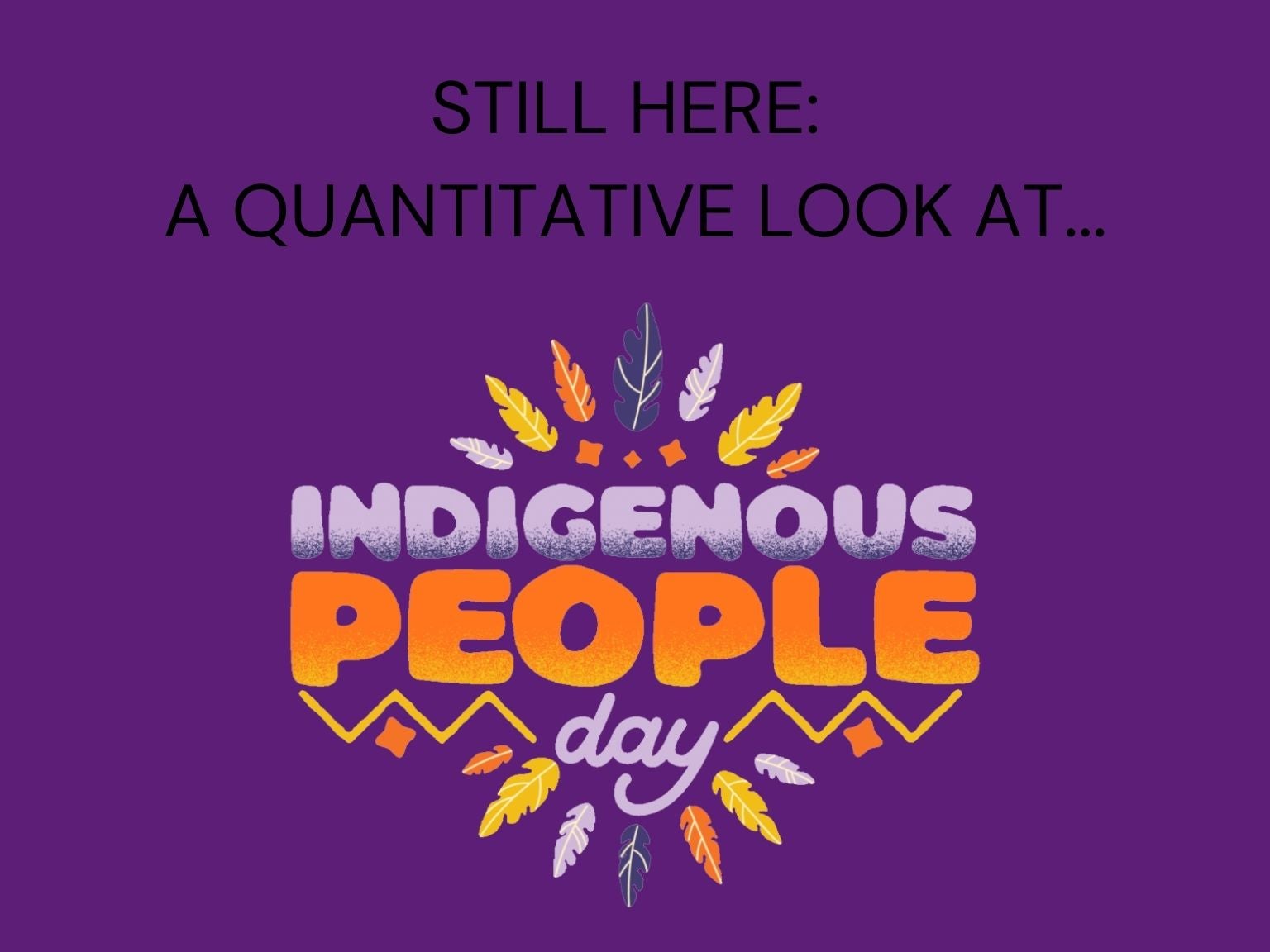In his 2009 book The Pueblo Revolt and the Mythology of Conquest, Stanford Professor of Anthropology Michael Wilcox introduced the idea of a “terminal narrative:” the collection of stories surrounding Indigenous Americans that reduces their entire history to the absence and death caused by colonization. These narratives erase the millions of Indigenous Americans who have lived since civilization and continue to live today. October 9th commemorates Indigenous People’s Day, a holiday meant to celebrate the histories and people that are so often forgotten. Although this is just a student-run blog on quantitative methods, we can play a small part in talking about them.
9.7 Million:
There are 9.7 million people in the United States who identify as Native American, in whole or in part. As with any large population, this number is hard to measure, but this data comes from the most recent US Census and seems to be as reliable as possible. Due to changes in how race and ethnicity were measured in the most recent Census (which gave more careful consideration to self-identification), the Indigenous population increased by 86.5% compared to 2010. The states with the largest Indigenous population include Alaska, New Mexico, and the Dakotas.
If you’re interested in researching this more, be advised that a lot of websites have not been updated to reflect the most recent data. Funnily enough, the Wikipedia article records the population as 9.7 million in an info pane, but the text still reports it as “over 5 million.” Technically true, but misleading. Always remember to check the most recent data!
32:
The first Indigenous People’s Day was held 31 years ago, meaning this year’s celebration was the 32nd Indigenous People’s Day. It originated in Berkeley, California, which used the 500th anniversary of the beginning of European colonization as an opportunity to examine how they commemorated it. Berkeley declared 1992 the “Year of Indigenous People” and changed Columbus Day to Indigenous People’s Day. From there, the change gathered steam around the country. Michigan adopted Indigenous People’s Day in 2019, and President Biden commemorated the first federal one in 2021. Although it is not a federal holiday, 17 states (including Michigan and Washington, DC) recognize it on a state level.
IndigiData
IndigiData is a data science bootcamp targeted at Indigenous Americans that aims to provide background knowledge and technical skills in topics like data ethics, Indigenous data sovereignty (more on that later), and Indigenous foodways. The one-week camp is meant for undergraduate-to-graduate students and is led by Indigenous data scientists. This program is very new, with the first one being held virtually in 2021. In 2023, they were able to offer two different workshops and double the amount of students served. Previous workshops have included gene editing yeast and corn, metabarcoding and qPCR in waterways, and data coming from the Dakotas.
Indigenous Data Sovereignty
Indigenous data scientists are at the forefront of campaigns for data privacy, security, and sovereignty. Since the beginning of colonization, Indigenous data of every form has been stripped from Indigenous communities. Exploitation has only continued with the advent of Big Data. In 2002, Indigenous residents of Vancouver had blood samples taken for what they were told would be an investigation of the genetic markers of arthritis. These samples were then used, without knowledge or consent, in other tests, eventually producing six published articles.
The basic premise of Indigenous data sovereignty is that Indigenous people and communities have the right to collect and use their own data without exploitation or interference from outside groups. This doesn’t mean that Indigenous communities want to keep their data shuttered away from anyone else forever; rather, they want the right to make sure that data is not used without their consent.
One example of Indigenous Data Sovereignty comes in the form of the CARE Principles. Developed by an international network of data scientists and organizations, the CARE Principles (Collective benefit, Authority to control, Responsibility, and Ethics) outline a vision where Indigenous communities and individuals are empowered, rather than exploited. Data would be used with their consent and to benefit their communities in a sustainable, ethical manner. These standards have already been adopted by groups such as the Research Data Alliance and the Smithsonian.

